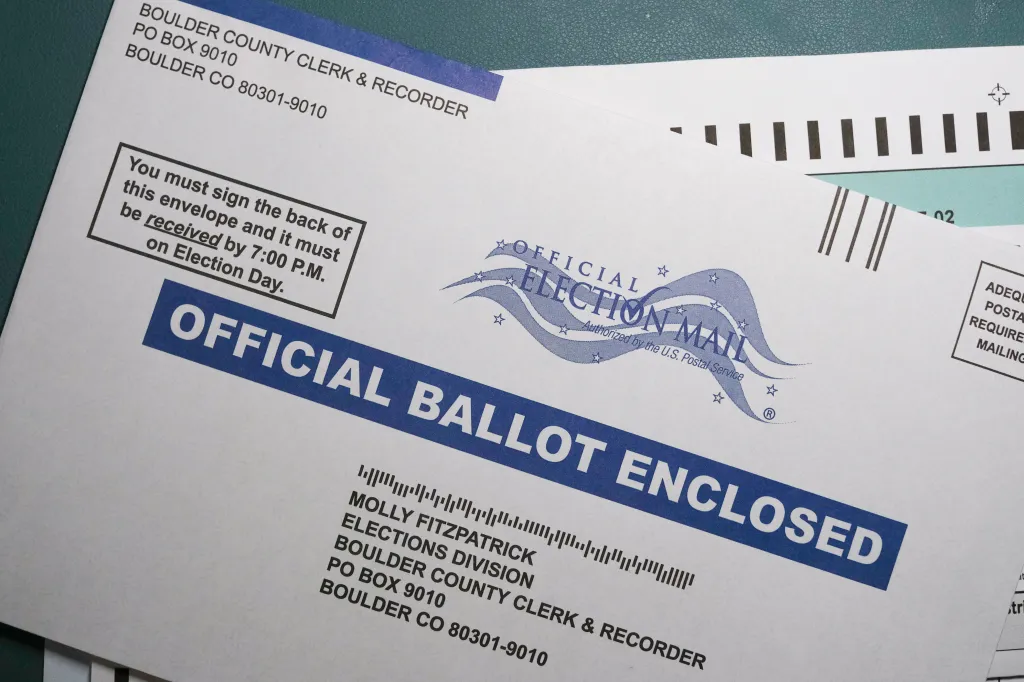Copyright Boulder Daily Camera

Wallach is focused on improving life for Boulder residents I’m bombarded daily with news of the tumult gripping our federal government. While it’s a tougher call at the national level, we can control policies at the local level. The upcoming City Council election is the primary way we can shape the City of Boulder. I live close to the downtown area, and I have seen with my own eyes the degradation of certain sections of the Pearl Street Mall, a combination of excess trash and the heartbreaking sight of homeless people resting on the sidewalks. Meanwhile, residents and visitors casually walk by on their way to restaurants and shops. Past 9:00 p.m., the area can feel unsafe, as fewer people populate the downtown streets. What used to seem like a vibrant, carefree environment often feels abandoned and unsafe. It doesn’t have to be this way. During his two terms on the Boulder City Council, Mark Wallach has prioritized public safety and fought to address homelessness with compassion and pragmatism. Moreover, he has focused on solidifying Boulder’s infrastructure, especially road maintenance, snow plowing and pothole repair. These are quality-of-life issues that affect everyone in Boulder. Mark Wallach understands the importance of day-to-day issues and is focused on improving life for Boulder residents. He’s earned my vote to serve a third term on City Council, and I encourage you to vote for him too. Tracey Blitz, Boulder Louisville measures will erect barriers to affordable housing My 2023 Louisville mayoral campaign emphasized links between housing affordability and economic vitality. The steady progress we are making on both is threatened by Initiatives 300 and 301, however. Please vote “no.” Why Louisville needs more affordable housing: • Businesses in Louisville demand more affordable housing options to reduce commutes of their mixed-income employees. They will go elsewhere if we do not provide it. • To meet consumer demand and generate sales tax revenue, residents desire more retail businesses, which require the concentrated foot traffic that affordable housing in denser neighborhoods provides. • The future of Louisville’s small-town vibe depends on it. Our housing stock is 70% single-family detached homes, the median home price is $831,000, and rents are high, excluding young families and essential workers who teach, cook, nurse, fight fires and attend our schools. Affordable housing will attract and keep them here. • Residents overwhelmingly voted for Prop 123 to fund affordable housing. Their input during the Comprehensive Plan process demonstrates continuing support. What Residential Rezoning Initiative 300 would do: • Ban residential development in key locations. Raising Louisville’s 12% affordable housing requirement to 30% — higher than any Colorado city — would substantially increase building costs, causing developers to bypass us. • Under the last Comprehensive Plan, Louisville banned housing in the Centennial Valley and expected office and retail development would occur. It did not. We should not repeat that decision. What Impact Fee Initiative 301 would do: • Complicate a strong impact fee-setting process developed by Louisville’s professional staff that is responsive to public input and subject to Council approval by inserting unelected, unaccountable citizens with unspecified authority. • Increase current fees by duplicating impacts already addressed through other fees. These initiatives erect prohibitive barriers to building much-needed affordable housing. Please join me in voting “no.” Chris Leh, Louisville mayor, writing in his personal capacity Big tech has created a nation of addicts With an inadvertent blunder, I temporarily lost my internet connection. For a couple of days, my mind seemed in a fog, and I wondered perhaps I was suffering from withdrawal. I only have a flip phone, but I was checking my email on my computer 3 and 4 times a day. Was I having withdrawal from that small connection? What then of all the people I see clutching and staring at their phones? Have the tech industries created a nation of addicts? They are making big money out of it. I fully recognize the value of the access and connections being provided, but I find distressing the loss of personal privacy and the opening of possible exploitation from data collection and storage. That artificial intelligence, with its potential for the manipulation of reality, is now the Holy Grail of tech research is even more frightening. All media are built around providing information and entertainment. Danger comes from being distracted from the realities of the physical and natural world around us. This is a connection worthy of being paid attention. The clouds held in one’s hand are the stuff of nightmares. Robert Porath, Boulder



